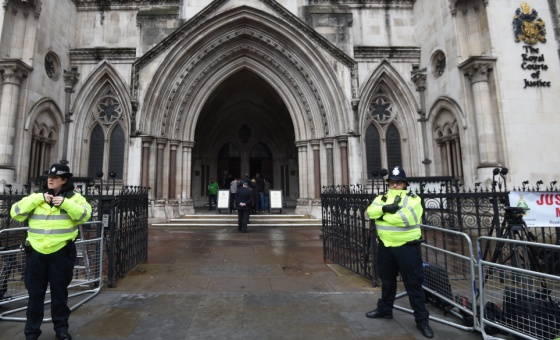This is the last article you can read this month
You can read more article this month
You can read more articles this month
Sorry your limit is up for this month
Reset on:
Please help support the Morning Star by subscribing here
THE opposition pro-Kurdish People’s Democratic Party (HDP) called for a ceasefire yesterday after Turkish jets blitzed Kurdish PKK militia in northern Iraq overnight.
Warplanes pounded about half a dozen positions of the Kurdistan Workers’ Party (PKK), including the group’s mountainous stronghold in Qandil.
PKK spokesman Bakhtyar Dogan said that the air strikes had lasted for three hours and caused “a lot of damage.”
Iraqi Prime Minister Haider al-Abadi said on Tuesday his council of ministers viewed the air strikes in his country as “a dangerous escalation and a violation of Iraq’s sovereignty.”
HDP co-chair Selahattin Demirtas called for the resumption of peace talks with the PKK, whose leader Abdullah Ocalan has been imprisoned since 1999.
But Prime Minister Ahmet Davutoglu rejected the call, insisting that talks would not happen until the HDP distanced itself from the rebels and the PKK withdrew its forces from Turkish territory.
“We’ll respond to their call the day they can condemn PKK terrorism the way they condemn Islamic State (Isis) terrorism,” Mr Davutoglu said.
“Until they do that, they are guilty in our eyes and in the eyes of the people.”
The air campaign against the PKK has been carried out on the pretence of attacking Isis militants.
Paris-based social anthropologist Carol Mann said that the US had supported Turkey in return for permission to use the Incirlik airbase for air strikes on Isis in Syria in support of Ankara’s favoured anti-government rebel groups.
But US State Department spokesman John Kirby denied allegations that Washington had sanctioned the bombing raids on the PKK.
These include the PKK-allied Kurdish People’s Protection Units (YPG), which control the cities of Afrin, Kobane, Hassakh and Tal Abad.
Mr Demirtas told the BBC that Turkey’s proposed “safe zone” was a ploy to stop Kurds from controlling territory.
Ms Mann concurred, pointing out that the relatively short zone south of the Turkey-Syria border would only cover some 60 miles of the 550-mile frontier, but “conveniently” lies between Afrin and Kobane.









